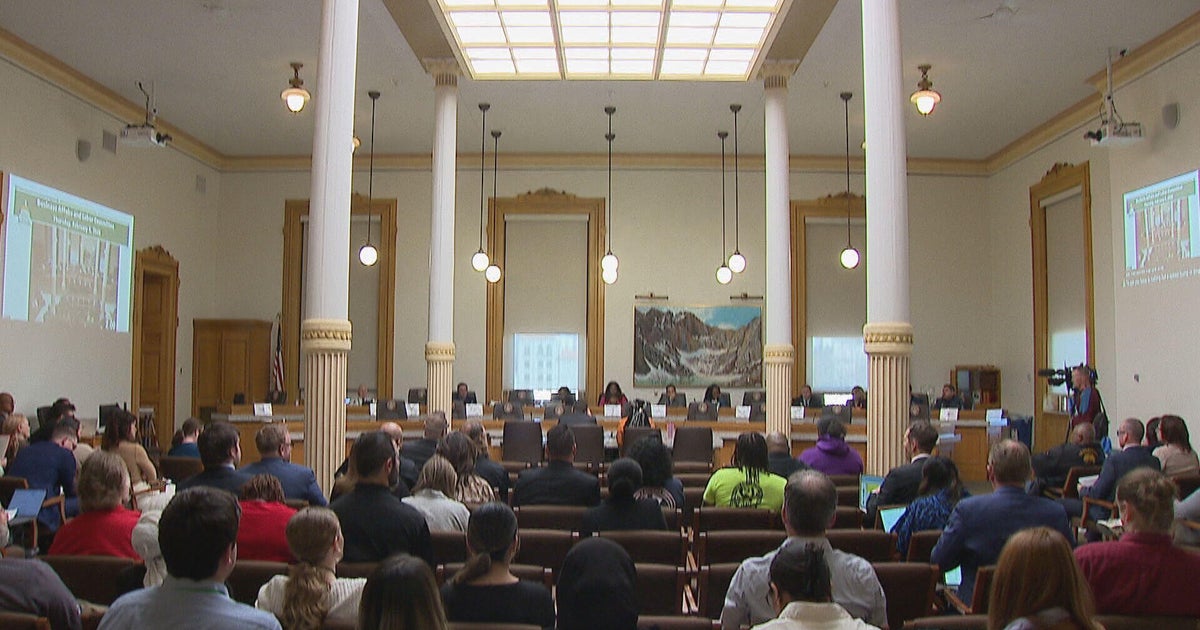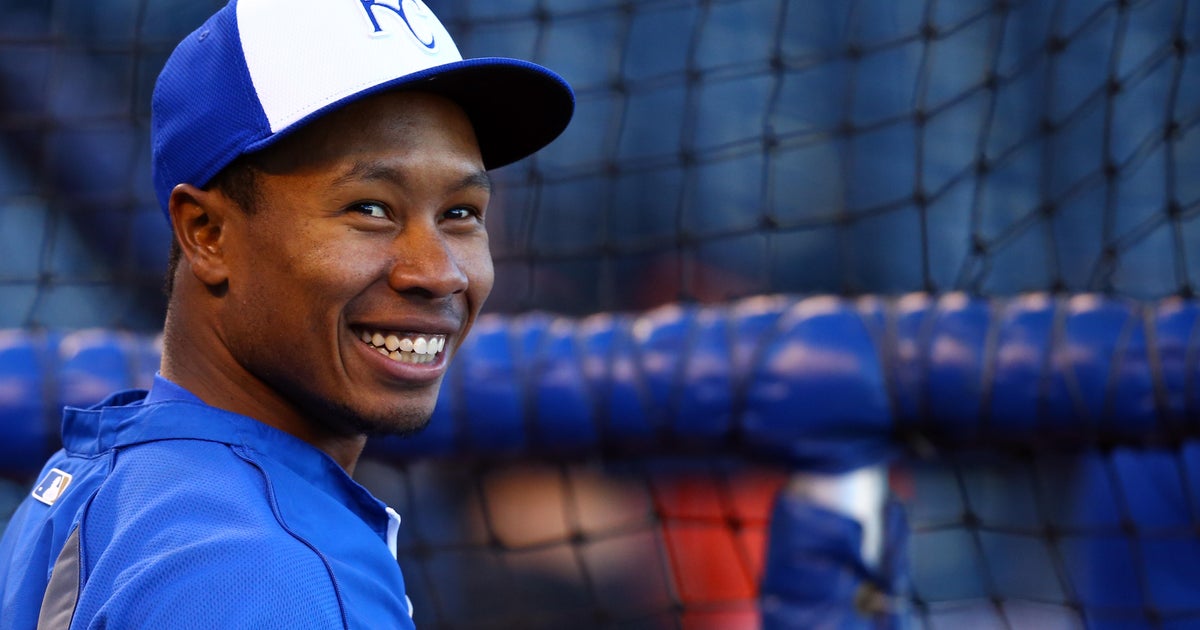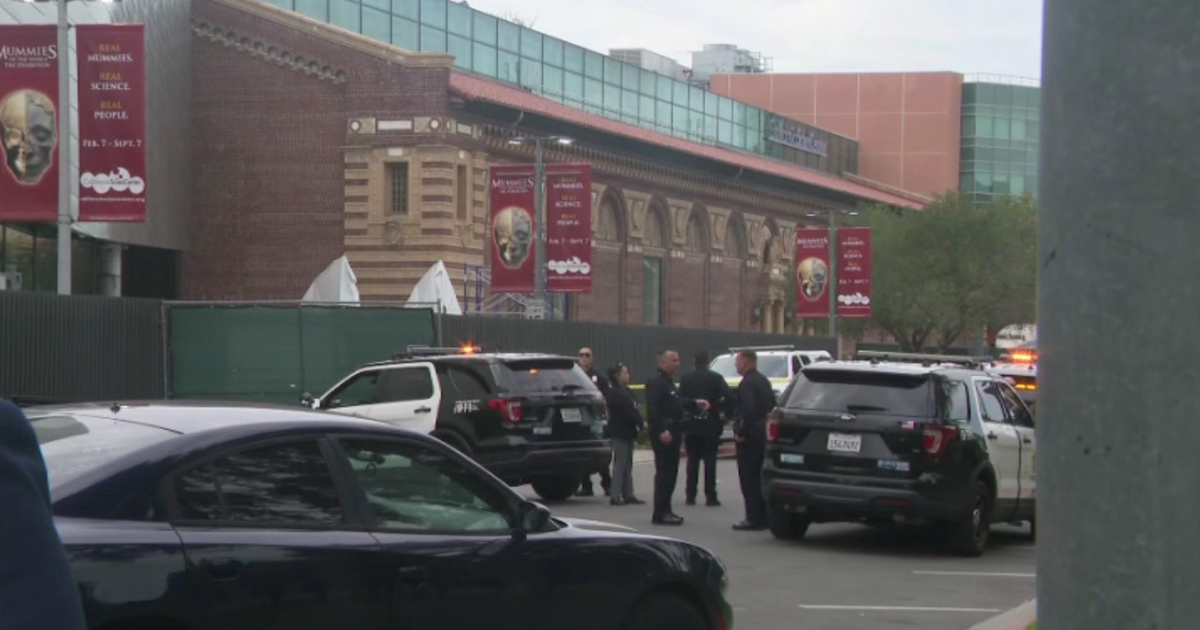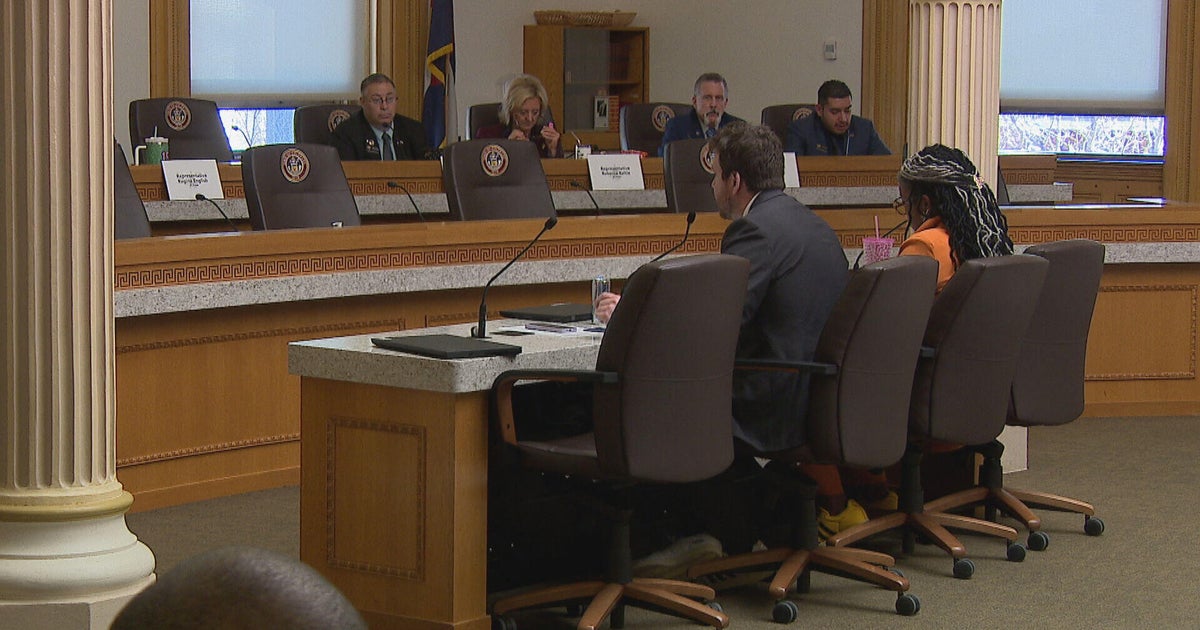Lyons: Commissioner-Elect Manfred Has Long To-Do List
By Brett Lyons-
(CBS) Last Thursday afternoon, Major League Baseball made it official in naming Bud Selig's successor.
Former league chief operating officer and labor lawyer Rob Manfred will take the reins from Selig this January, making him the 10th commissioner in the sport's history.
While this is tremendous news for Manfred, Selig isn't necessarily turning over the keys to a shiny, new Range Rover. Manfred is receiving a mid-'80s station wagon that needs new tires, shocks and an engine overhaul.
Though new baseball television deals continue to leave jaws dangling across the country, baseball isn't exactly standing on the firmest of ground right now. The red flags may not be very high in the air, but they're quickly getting there.
Selig did a tremendous job to popularize the sport in the 1990s. His list of accomplishments in his two-plus decades as commissioner is actually impressive, seeing as baseball traditionalists are some of the sternest and most stubborn people on the planet. Selig is to credit for the league's six divisions, interleague play, balanced realignment, wild cards, more wild cards and "instant" replay (the quotes can't be stressed enough). Easily, the meaningful All-Star Game gimmick nearly negates all of those positives itself, but that's for another column.
The product that Manfred is inheriting is at a crossroads with numerous issues that threaten the game's longevity. Quite frankly, Selig was too comfortable toward the end of his tenure to take the needed hard stance on many of these issues.
The ball will soon be in Manfred's court, and the commissioner-to-be has a lengthy shopping list of chores he needs to cross off to ensure that MLB – once the country's pastime – stays relevant and fruitful for generations to come.
Because both Manfred and the NBA's Adam Silver are the newest commissioners for their respective sports, it will be impossible for similarities not to be drawn. Silver's first main act of banishing Donald Sterling and pushing the sale of the Clippers was received with applause and praise. From the word go, Silver made his presence felt and had an immediate impact on basketball. Through the court of public opinion, Manfred will be challenged by critics to flex his muscles in a similar fashion.
Below is a "to-do list" for baseball's heir apparent. I'll admit some tasks listed are easier said than done, but change inevitably does happen to everyone and everything – even the time honored sport of baseball. Here's to wishful thinking.
Universally adopt a DH in both leagues
I'll admit that when I was a youth, I used to be of the mindset that having the pitcher bat was in the best interest of the sport. Why? Because strategy, that's why! Double-switches and pinch-hitters in the fifth inning are all well and fun, but the more mature me wants to see 30 designated hitters in MLB by 2016.
I've had it with automatic outs every ninth hitter in National League parks. It's stupid. Nothing kills a rally quicker than seeing a lanky left-handed pitcher miserably try to bunt at a 94-mph fastball, only to strike out on a foul ball. Even Gordon Beckham can't end a rally that quickly, though bless him for trying.
Some hurlers do succeed when holding the lumber. But for every Carlos Zambrano, there are 100 embarrassing examples of why pitchers hitting is laughable. Aside from the fact that pitchers hitting causes almost nothing but outs, there's a player safety issue here, too. I'll be damned if I'm Don Mattingly and I have to explain to my general manager why Clayton Kershaw's shoulder got blown out on a pickoff play at second base (hypothetical, of course). Pitchers don't belong on the basepaths. Know where else they don't belong? The batter's box.
More DH-ing jobs lead to longer careers for baseball legends of yesteryear. It's not like the national media holds on to fading stars from the '90s or '00s. I barely even heard Derek Jeter's name mentioned on the All-Star Game telecast this year. Did someone forget to inform Joe Buck that this was his final one? His producers should be fired for forgetting something so significant.
MLB is a game of stats. It always has been and it always will be. But the sport and its fans love one statistical category more than any other – the home run. Why rid your sluggers the opportunity to set off fireworks after launching baseballs into the outfield stands? Critics harp on hockey and soccer for being boring because they don't score enough. Baseball sometimes has those days, too. It's just nonsensical to take away possible additional runs because "that's how it's always been done."
Finally coming to agreement on the DH/no-DH controversy would go so much further than just making the game more exciting. Interleague play would be streamlined, especially now that it's year round and not just two weeks in June. Having both leagues play by the same rules would even open the door for more interleague play, which is something that MLB would love. Any chance MLB's brass get to send the Yankees to Wrigley Field, Dodger Stadium or Busch Stadium, they'll do it.
Continue to improve instant replay
Selig really broke the back of baseball's traditionalists when he allowed the use of instant replay during games. Baseball has always prided itself on being a sans-replay sport, but Selig knew the sport received far too much criticism over obvious missed calls. Just ask Armando Galarraga whether he feels the sport needs to take advantage of the dozens on in-stadium cameras recording every play from multiple angles.
At first, replay being used strictly on home run calls was all right, simply because it was a foot in the right direction. This 2014 season included a huge leap forward, but obvious flaws remain.
Aside from calls still being wrong (partially I believe because of umpire stubbornness), the replays take excessively too long. Within three or four different looks from a TV truck's broadcast, it should be clear whether a call should stand or be reversed. Three-minute reviews on whether a runner's foot touched first base before the ball was in the fielder's mitt are unacceptable. If it makes more sense to have a designated replay official part of every umpire crew and stationed at each park, so be it. Whatever the hold-up, replay can't continue to be such a major flaw. In due time it will get better, but there need to be smarter rules.
Fix experimental Rule 7.13
And while we're on the topic of rules, how about multiple amendments to Rule 7.13, which addresses home plate collisions? I'll even rewrite it now in layman's terms.
If a runner initiates excessive physical contact with a catcher in hopes of prying the ball lose, the runner is automatically out. If a catcher intentionally blocks the plate without the ball or unnecessarily initiates a collision, the run scores.
There, that's really all that needs to be in there. Enough of this "part of the plate" nonsense. There's far too much gray area. Experiment failed.
Interest younger generations
Perhaps this is Manfred's biggest task, because there is no one simple solution. The Sports Business Journal reported the average age of the All-Star Game viewer to be 53 years old. That's a huge problem.
Why would this younger generation be disinterested in baseball? A large reason is surely because games are now averaging over three hours, with Red Sox-Yankees games pushing four hours regularly. The molasses speed of baseball is simply a huge turn-off for today's youth.
Not many things annoy teenagers more than their tweets taking 10 seconds to send from their iPhones, when they should take no more than three seconds. Or that uploading a picture of what they made for dinner to Instagram is stalling because the Wi-Fi isn't strong enough to process all those filters.
We live in a generation of instant gratification. If you want something and get it when you want it, it's already too late. Kids are stereotypical examples of this. Everything has to be now, now, now. Technology has turned humans into impatient ticking time bombs, just waiting to explode. Baseball's stall tactics don't help.
The simple solution would to enact the rules baseball already has in place. To be more specific, Rule 8.04 states that pitchers have 12 seconds to pitch once a batter steps in and the bases are empty or the umpire can call a "ball." Remember the last time that happened? Me neither.
It's probably not fair to pin the disinterest of the youth solely on slow game play and delays, but it makes sense. Unless Manfred can think of a way to speed the game up even faster, he's stuck between a rock and a hard place on this one. Normally opinion columns come with solutions, but I'm stumped on this one.
Allow banned greats into the Hall of Fame
I've got your back, Pete Rose. Not that I don't love the fact he stakes out a tent to sell autographs in Cooperstown ever summer despite being banned from the sport for life, but this silly little power struggle between he and Selig can finally come to an end. Nothing would make the statement of "We're doing things my way now" quicker for Manfred than to undo what his previous commissioners were too afraid to do.
Just allow Rose to take his place among baseball's immortals already. It's idiotic to hold a grudge for the better part of three decades. He belongs there. And so does Shoeless Joe Jackson. And Barry Bonds. And Mark McGwire. And Roger Clemens. These players and their stories are all part of the historical narrative of baseball. Whether they're considered legends or black eyes to the sport, they shaped the game one way or another. Remember them.
Aside from the issues listed above, there are lots of other hot-button topics for Manfred to address, such as salary caps, globalization of the game and drug testing. In an ever-changing world, there will always be something that needs tweaking or fixing. That's just life. Baseball just seems to have a flurry of problems currently, but that can change. With a strong mind and a fearless attitude, Manfred can achieve greatness and make a name for himself.
It's time to see what the future holds for baseball, and it's on the new leader to lead it to the promise land.
Without a doubt, Manfred's plate will be full. I just hope he's hungry.
Brett Lyons is a producer and board operator at 670 The Score. Follow him on Twitter @Brett__Lyons.







